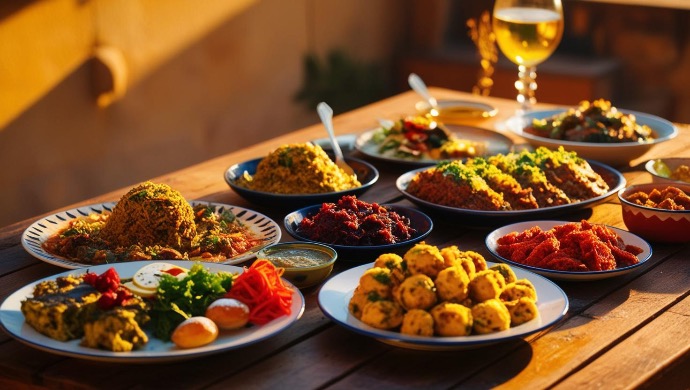What we do
Advance
Consulting is implementing a 4-year horticultural project in Jordan. The
project started in January 2023 and is financed by the Dutch government.
Advance Consulting aims to develop Jordan’s horticulture private sector by
improving good agricultural practices, labor conditions, access to innovation,
finance, and markets for 1,300 horticultural SMEs. Additionally, the
organization aims to enhance the business performance of at least 50 supply
chain companies, strengthen the capacity of sector institutions, and raise
awareness among 75,000 consumers and farmers about the link between sustainable
food production and healthy food consumption. Together
we test and demonstrate cost-effective innovations at farms in
the Jordan Valley and the Highlands with the aim to:
Increase productivity and profitability.
Produce healthy crops with no residues.
Reduce water use.
Sustain employment and improve conditions of work.

Farming for the future
Targets: 1,900 horticulture SMEs and 12,000 horticulture farmers.
Aims at: improving eco-efficiency, water efficiency, farming practices, labour conditions and access to innovation, finance and markets of horticulture SMEs to adopt Farm of the Future (‘FOF’) tools and practices at scale.

Business development and access to finance
Targets: 50 supply chain companies and cooperatives
Aims at: improving business performance of supply chain companies through development of 4 financial products, facilitating exchange, direct support and establishment of a citrus sector cooperative.

Supportive environment and consumer awareness
Targets: 3 public sector actors in horticulture, including 200 staff and students, and 75,000 consumers
Aims at: supporting private sector driven research into eco-efficiency, knowledge building, sustainable provision of extension services, improvement of consumer awareness.
Cook of the Future Competition
The Cook of the Future is a culinary challenge designed to discover Jordan's most future-ready chefs. Participants craft exceptional dishes using ingredients from a mystery basket provided by Farm of the Future farmers, with a focus on healthy and sustainable vegetables and fruits as the centrepiece. The programme showcases innovations and creative challenges for both producers & consumers, while highlighting some of Jordan's most sustainable food companies and restaurants.

Where we work
Holland Horti Support Jordan – Areas of project Activities
Holland Horti Support Jordan has activities in 4 main regions:
Greater Amman, Jordan Valley, and Northern Highlands. Read more..